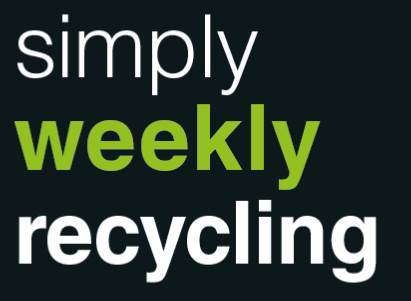You may have noticed that we collect fewer types of plastic now. And we don't collect cartons either. That's not something we wanted, but we have had to change over the last year or so as the markets for recycled plastics and cartons have contracted.
Plastics
In 2018 China stopped importing large quantities of plastic waste. That had a huge impact on global markets. For example, in 2016 China imported over seven million tonnes of plastic waste.
Suddenly the UK and other countries had to find new markets for plastic waste. Some plastics became too costly to recycle (it's important to remember that once recycling is collected by councils it is passed to commercial companies for which recycling is their business). Now it’s hard to get plastics recycled if they’re not a bottle, pot, tub or tray.
Cartons
It's now very hard to get cartons recycled. They're complex, and the market for them after recycling is very limited. As a result, last year only 2% of all of the UK's cartons got recycled. That's not because we don't want to recycle them. Rather, it's because it's really hard to find any company that actually does it.
So hard, in fact, that the companies that sort out our recycling after collection simply won't allow cartons in their loads. So we were forced to remove cartons from our recycling collections. We're sorry about that, but we were faced with no practical alternative.
What if the wrong plastic, or a carton, goes in the recycling bin?
The recycling companies scour the recycling to take ‘non-core’ items out, which are then burned instead of being recycled. That all costs a lot of money. And residents pay the bill. So it's best to put them straight into the refuse bin instead.
How our service has changed
We used to collect all types of plastics, and cartons too.
We always knew that not every plastic item could be recycled. But it was only a tiny fraction - about 2% - of the plastics we collected at the time. So our 'all plastics' policy made sense because it cost very little, and its simplicity encouraged people to recycle more overall.
But the upheaval in the recycling markets means we can't do that any more. Now, it’s cheaper for residents if we ask you to just recycle plastic bottles, pots, tubs and trays. All other plastics, and any cartons, should go into your black refuse bin. Please help us - we can even lose full loads of recycling if the companies feel there's too much of the wrong stuff in them.
We can reassure you that if we could get all plastics and cartons recycled, we surely would. But this is an international problem that doesn’t look like being solved soon.
Has this hurt our recycling performance?
Overall, no. Certainly, we've lost the benefit of some plastics recycling. But Epsom & Ewell residents are recycling more and more, and our performance has continued to climb. We now recycle over 53%, way ahead of the national average. Learn more about recycling and waste.
Will this get fixed?
We know that residents care about this. Many of you have told us so. But it will take national and international actions to fix it.
At the end of 2018 government announced its Resources and Waste Strategy for England. This wide-ranging strategy looks at things like developing new recycling technologies; stimulating the recycling markets in the UK; making producers more pay for packaging waste; encouraging simpler and more easily-recyclable packaging, and introducing a plastic packaging tax.
Although it's now over four years since the government announced its strategy, we don't yet know what will come out of it. There were public consultations in 2019 and 2021, and we are told that there should be announcements in early 2023.
We hope that the government's strategy will reduce the amount of hard-to-recycle waste, and help the recycling markets.
What you can do
In the meantime, you really can help. The Surrey Environment Partnership is the partnership of all Surrey's councils working together to manage waste. Its website gives handy tips on how to reduce, re-use and recycle your waste, like using fewer single-use plastics.
Whatever you do even a small decision, like buying a reusable coffee cup, makes a real difference to what retailers sell and how much waste we generate. Thank you.


